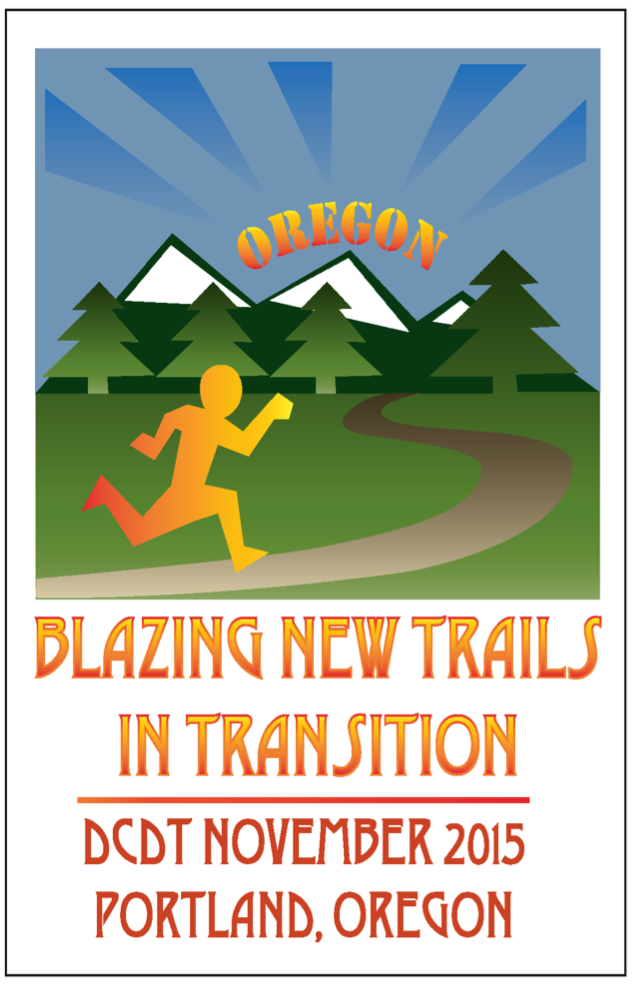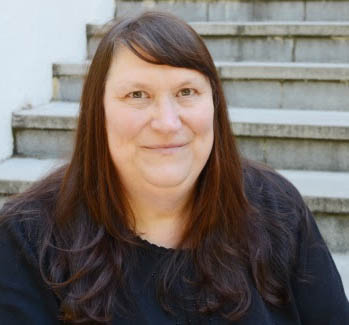Blazing New Trails in Transition
November 3, 2015
TRI Presents at Division on Career Development and Transition International Conference
a Division of the Council of Exceptional Children

"Post-school outcomes tell a story uniquely applicable to diverse audiences."
So writes TRI's Pattie Johnson in the description of her presentation for the Division on Career Development and Transition International Conference which took place November 5-7 in Portland, Oregon.
Transition experts from across the world gathered for this conference which provides opportunities to share research and field based expertise in transition assessment, family partnership, post-secondary education, employment, self-determination and much more!
Innovating in Oregon for well over a decade
Ms. Johnson is the Director of TRI's Technology & Information Management Systems (TIMS) and, from that position, has supervised the Oregon Department of Education's special education data sets, the post-school outcome reports, and the Transitions Community Network - providing a "one-stop shop" for resources related to transitioning youth with disabilities to adulthood in Oregon. Ms. Johnson has been at the leading edge of innovations in the field of transitions in Oregon for well over a decade.
TRI's contribution to the DCDT International Conference
Improving Local Programs With Outcome Data
Pattie Johnson (The Research Institute at Western Oregon University), Sally Simich (Office of Learning, Oregon Department of Education), Charlotte Alverson (National Technical Assistance Centre on Transition, National Post School Outcomes Center)
This session focused on the use of data-driven decision-making to improve student post school outcomes. Additionally they reported the benefits and lessons learned related to data analysis and reporting to identify areas for program improvement in LEA’s
Post-school outcomes tell a story
uniquely applicable to diverse audiences – results can be disaggregated by
disability, ethnicity, gender, method of exit, geographic location, and age.
Unfortunately, few local administrators and practitioners use these data to
their fullest and most powerful potential to improve in-school programs for all
youth with disabilities, especially targeting youth in critical subgroups.
Strategies were presented to organize data in a meaningful way to help stakeholders, including practitioners, families, researchers, and adult service providers, understand how the data are crucial to drive improvement.
Building Bridges to a More Meaningful Life
TRI colleague, Michael Fagbemi (National Center on Deaf-Blindness / Helen Keller National Center)
This
presentation covered a few areas in the disability of dual sensory loss
(deaf-blindness) important to young adults who are in the midst of lifelong
transition planning towards academic and career success. The national agenda
for all youth including those with disabilities is to provide breathe inclusive
practices, equity, opportunity and raised expectations into systems, providers
and families.
The road to post-secondary success for young adults who are deaf-blind can be a complicated one. Young adults who experience combined hearing and vision loss often find themselves in the precarious position of isolation from their peers, community and family. These young adults in mainstreamed and specialized schools experience challenges of access to quality teachers, instruction and information. These young adults isolated by the language, communication and access to incidental information provided by natural environments are impacted adversely on a variety of levels. The post school outcomes for young adults who are deaf-blind are abysmal.
The deaf-blind network comprised of individual state projects have a
history of providing services in their states to the school districts grappled
with how they could connect the youth regionally in a meaningful way. The development of the transition institutes
captured the essence of what collaborative network behavior could do. Young adults for the first time became aware
of their peers and soon would learn that there were professionals who were
deaf-blind and living on their own as part of an inclusive community.
Eventually some of these young adults attending these institutes would gain
capacity to become leaders and soon the mentor program was born.
For more information about the Division on Career Development and Transition, go to: http://community.cec.sped.org/dcdt/home
Recent News Items
Closing the Achievement Gap Through STEM Education Nov 18, 2016
TRI Staff Members Present at NAEYC Conference in Los Angeles Nov 10, 2016
Three More Years for Campus Against Sexual Assault Program Nov 9, 2016
TRI's Serra Acar Appointed as DEC Recommended Practices Ambassador for Oregon Oct 13, 2016
